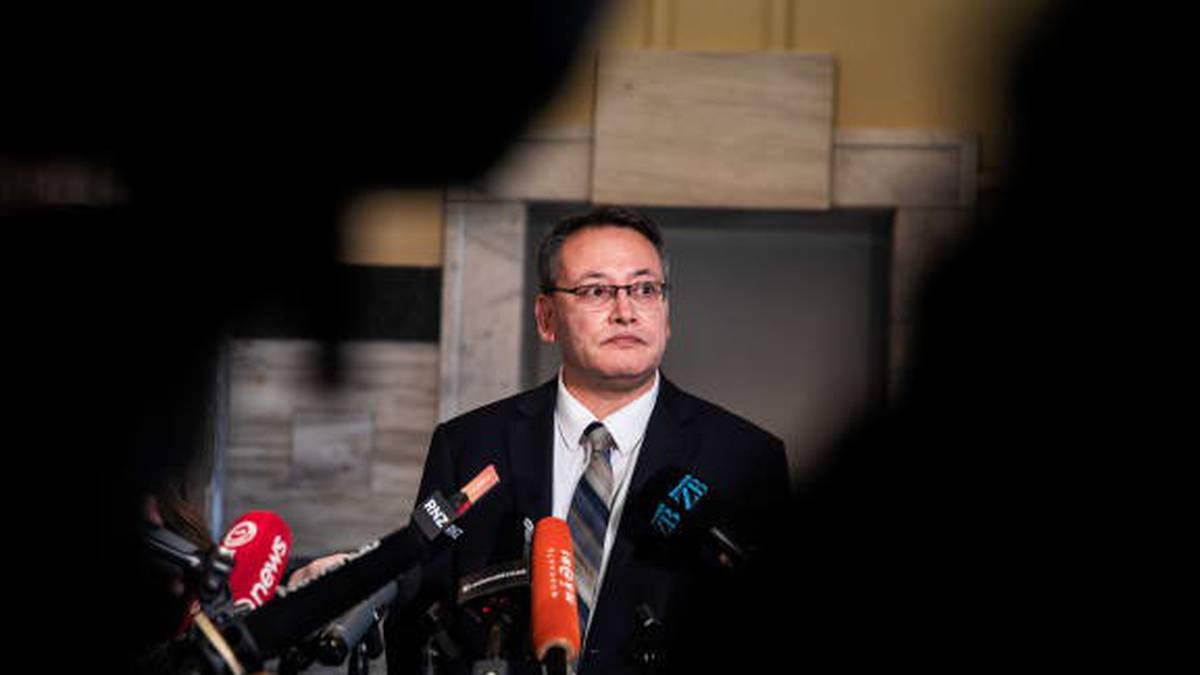Health Minister Shane Reti. Photo / Samuel Rillstone, RNZ
OPINION:
I read with interest the Minister of Health’s op ed in the Herald.
If he and the public were surprised at the strength of the opposition to the closing of the Māori Health Authority, they should not be. The Māori Health Authority represents one of the very few government initiatives that had any hope of addressing Māori Health inequalities.
I, as Tangata Tiriti, have had the privilege of working with the claimants of Wai 3307, Wai 2575 and Wai 1315 since 2005. I have been involved in the health sector in senior management roles in both the public sector and the not-for-profit sector now for more than 30 years.
Over that time the health sector has had 15 different Ministers of Health.
I noted that Reti’s article failed to address the major reason why Māori saw the Māori Health Authority as so important and why they fought so strongly to save it.
The simple reason is that they do not trust either the Government or health bureaucrats to deliver on their promises. For policies of government to work there must be trust by Māori.
Māori have every reason to have no trust in this government or the bureaucracy assigned to implement them. Here are some of the historic reasons why:
- When Waikato Hospital was opened in the 1900s, Māori were not allowed to be admitted as patients.
- Tainui elders recalled that during the 1918 flu epidemic, they were excluded from the health system and the only help they got from Pākehā was from Roose Shipping, which provided barges to bring coffins with the dead from down river to Taupiri Mountain for burial.
- In the 1930s, after Tainui’s Princess Te Puea built a hospital at Turangawaewae, the government of the day refused a licence to let it operate.
- In 2000, when Health Ministry officials were designing the new system of Capitation which was to become the fundamental basis of the new Primary Health system, officials were warned the system would prejudice Māori and practices with large numbers of high-needs patients.
- In 2002, when a doctor defrauded a Māori practice by misappropriating $35,000, made by sloppy processes in the ministry’s payment agency, the Ministry and DHB refused to repay the money or compensate the provider.
- In 2002, the ministry was told the new Capitation system resulted in the providers receiving less money than they received before the old system. That issue remains outstanding to this day.
- The ministry and government ignored reports by Deloitte in 2007 and 2010 which highlighted why Māori and other high-needs providers were severely disadvantaged by the payment system.
- Similarly, they ignored a more detailed report prepared for the National Māori Health Coalition which showed, more accurately, similar results.
- Despite a request for a meeting with the new minister sent in December 2023, no response has been received.
/cloudfront-ap-southeast-2.images.arcpublishing.com/nzme/VHV3P3NYJNDU7IN3LGYGPTB2H4.jpg)
In 2005, a group of Māori providers and primary health organisations lodged an appeal with the Waitangi Tribunal – Wai 1315. There were two key things the claimants were looking for.
Firstly, Tino Rangatiratanga and the establishment of a Māori DHB.
In the process, other claimants joined Wai1315 and in 2018 the Waitangi Tribunal heard the amalgamated claim Wai 2575. Their report was and remains the most detailed and well-researched report on Māori Health inequities in the past 20 years. Included in that report was the recommendation to establish a Māori health authority.
It is interesting to note that at the hearing, the evidence presented by numerous witnesses for the claimants was largely unchallenged or rebutted by the Crown. The ministry essentially admitted the historic actions or lack of them that had led to Māori health inequalities but said: “Trust us, we will do better in the future.”
The recommendations of the tribunal and the actions of governments since they were issued further illustrate why Māori do not trust either politicians or mainstream bureaucrats to resolve these long-seated health inequality issues.
The recommendations were:
- The Crown to continue to work with claimants in partnership to further develop a Māori health authority that empowers tino rangatiratanga.
- The Crown and claimants to urgently progress work to agree upon a methodology to calculate underfunding experienced by Māori primary health care organisations and providers since 2000.
- Once the Crown and claimants agree upon a methodology, the Crown to fully compensate those Māori health organisations and providers that had suffered from underfunding.
- Once parties calculate the amount of compensation due, they agree upon a method of payment, whether as a lump sum or in instalments.
- The Crown to fully reimburse claimants for the costs of producing the Sapere report, and fund the process required to agree upon an underfunding methodology.
- The Crown to work with the claimants to use the underfunding methodology work to inform future primary health care funding.
/cloudfront-ap-southeast-2.images.arcpublishing.com/nzme/63FYVO7YMFDZFNCORXQDS65354.jpg)
The way these recommendations have been treated since the tribunal’s report is further evidence of why Māori health providers do not trust either successive governments or bureaucracy.
The Labour government established the Māori Health Authority but did not engage with the claimants in a meaningful way in its establishment.
By disestablishing the Māori Health Authority, the Government has removed a very important opportunity to address major historical health issues. Reti says “decisions should be made closer to the community, to the home and the hapū”. He could not find organisations who have delivered and continue to deliver services closer to the community than the claimants. Yet he has refused to meet them and has ignored their advice as to the best way to address these long-standing issues.
Neil Woodhams is a retired chartered accountant with extensive senior management and governance experience in the finance, banking and primary sectors, followed by a 25 year career in health management within the community, not for profit, primary, secondary and tertiary health sectors. He is President of Multiple Sclerosis New Zealand and an Advisor to the Claimants of the Treaty of Waitangi Wai 2575 Claim on the underfunding of Maori Primary Health providers. He was a former Chief Operating Officer of Auckland District Health Board.




 Taranaki club builds on success of previous Lego-themed fundraisers
Taranaki club builds on success of previous Lego-themed fundraisers